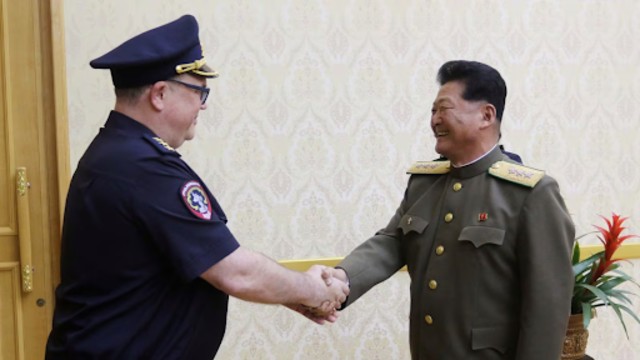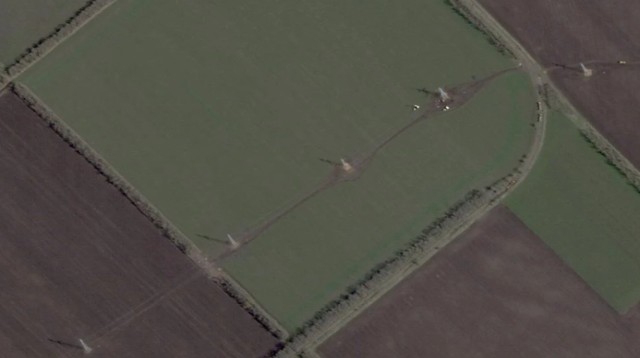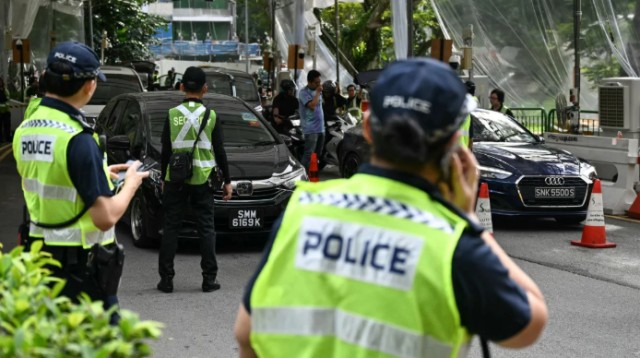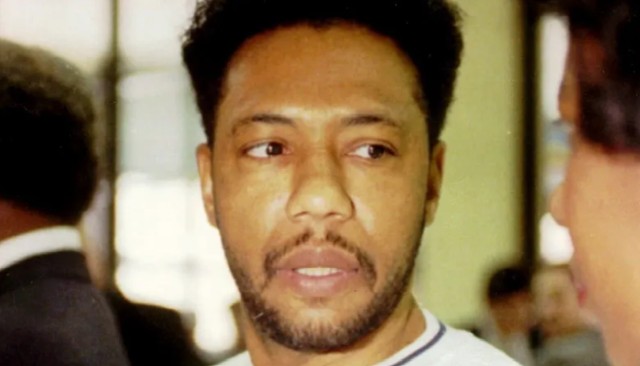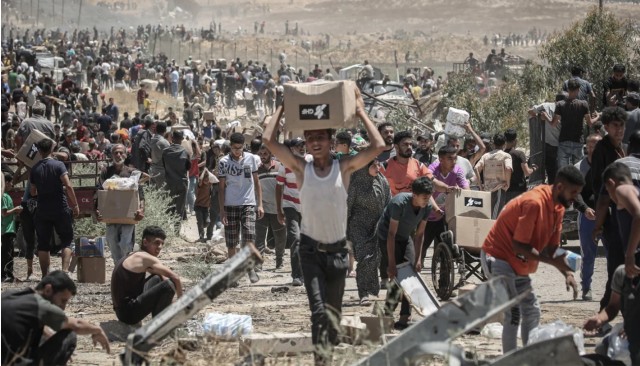
Palestinians carry boxes of humanitarian aid collected from a distribution center in the Netzarim Corridor, central Gaza Strip, on Thursday.
A newly launched aid initiative in Gaza, the Gaza Humanitarian Foundation (GHF), is drawing sharp criticism. Although created with the intent of preventing Hamas from accessing humanitarian supplies, the group is reportedly distributing aid without any form of recipient screening.
Despite being backed by Israel and the U.S., and claiming to enhance aid security, GHF has failed to implement basic safeguards. Eyewitnesses and journalists have confirmed that people are receiving aid without ID checks or verification—raising doubts about the group’s true effectiveness.
No ID Checks, No Oversight
Palestinians at multiple GHF aid sites reported no security or identification procedures. Aid boxes were freely handed out, with no checks to confirm eligibility. This contradicts GHF’s stated purpose of ensuring that Hamas and criminal groups do not hijack humanitarian supplies.
In contrast, established UN agencies like UNRWA rely on a detailed database. They require identification and track distributions to specific families, aiming to prevent misuse or theft.
Criminals Exploit the Chaos
According to locals, the absence of security at distribution sites has opened the door for abuse. Eyewitnesses told CNN that gang members and merchants are hiring people to repeatedly enter sites and collect food boxes for resale. Footage captured by CNN shows men hauling aid boxes away on donkey carts while hiding their faces.
“There’s theft happening,” said Yousef Shallouf, a Gaza resident. “Gangsters are paying people to bring them aid boxes.”
Another Palestinian, Bilal Hawadri, added, “At first, some stood in line. But soon, people just started stealing.”
GHF: “Feeding Comes First”
Responding to criticism, a GHF spokesperson said, “Our focus is on feeding hungry people, not checking IDs.” They denied witnessing criminal behavior but admitted that the situation is "fluid." They added that procedures may change based on ongoing assessments.
Still, many question how the group plans to ensure transparency and fairness without formal tracking or identification processes.
Heavy Security for Trucks—But Not People
While screening at distribution points is lacking, GHF operations are protected by heavy militarized security. American private contractors are guarding convoys entering Gaza, preventing looting of aid trucks before they reach distribution sites. However, once supplies arrive, the absence of control has led to disorder and accusations of corruption.
UN Agencies Opt Out Over Ethical Concerns
Traditional humanitarian organizations like UNRWA have refused to work with GHF. They argue the new system violates humanitarian principles and increases the risk to civilians. The UN insists that aid should be distributed based on verified databases and strict accountability—something GHF currently lacks.
Due to Israeli restrictions, UNRWA has been forced to switch from a household-based model to mass distribution through public kitchens and bakeries, further complicating aid tracking.
Deaths and Disorder at Distribution Sites
Tragic consequences have already followed GHF’s launch. According to the Palestinian Ministry of Health, 11 Palestinians were killed this week near aid sites due to Israeli gunfire during chaotic distributions. In one incident, thousands of desperate civilians overran a site, forcing American security teams to withdraw.
Such scenes underscore the risks posed by GHF’s loosely managed operations.
Over 2 Million Meals Delivered—But At What Cost?
GHF claims to have distributed over 23,000 food boxes this week—equivalent to 2 million meals. Interim Executive Director John Acree described the mission as successful, despite the “emergency intensity and kinetic environment.”
“This is just the beginning,” Acree said. “We’re committed to safely and effectively supplying food to Gaza’s hungry.”
Aid With a Side of Controversy
While GHF continues to expand its reach, serious questions remain. Is unregulated aid distribution helping or harming the people it aims to serve? With reports of theft, violence, and exploitation mounting, the foundation’s long-term effectiveness and ethical standing are under intense scrutiny.





